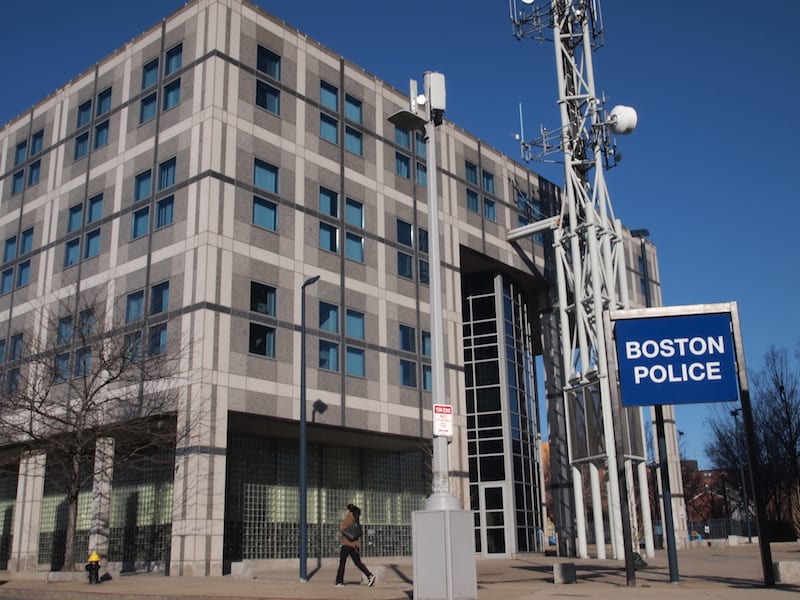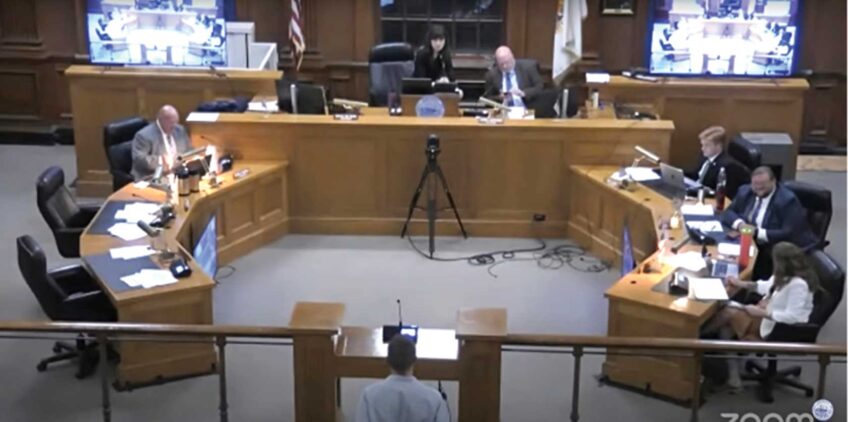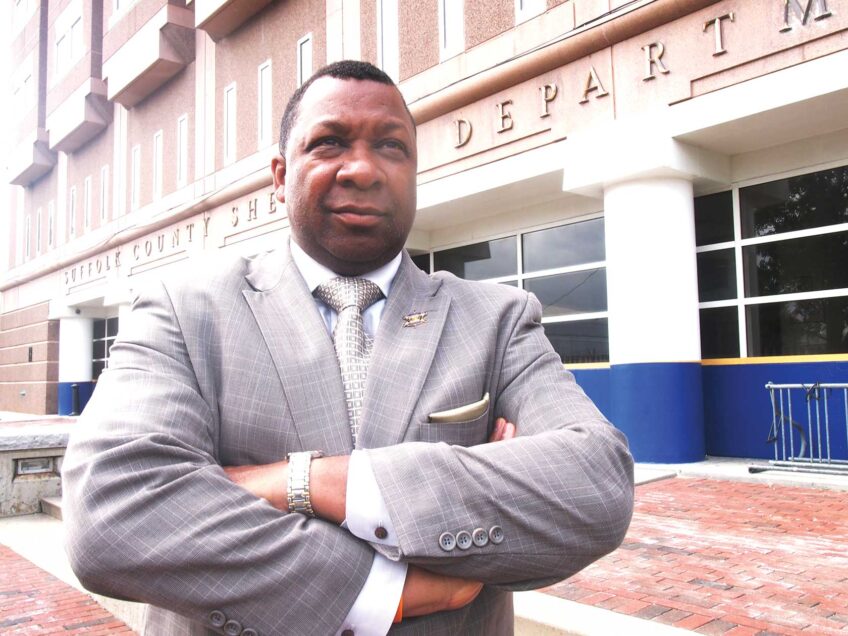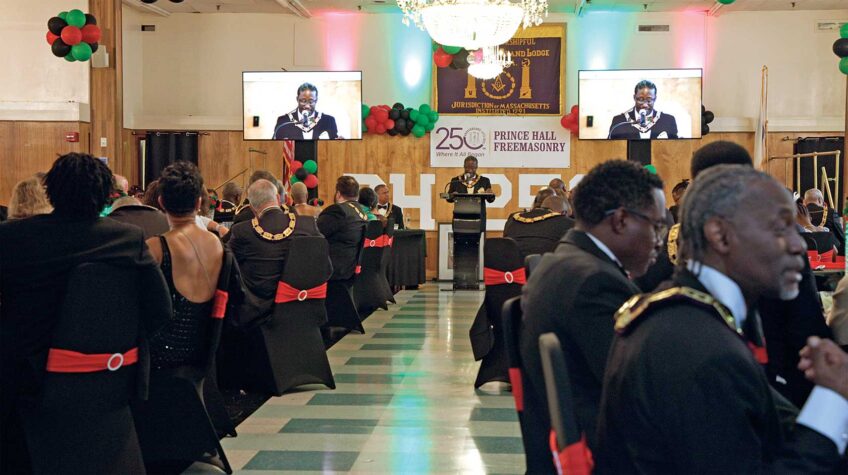BPD rapped for bypassing black applicant, again
Civil Service orders prospective officer to be put at top of list

The state’s Civil Service Commission has ordered the Boston Police Department to place a black applicant at the top of its list for hires after a department investigator bypassed him for consideration over a criminal case 16 years earlier for which he was not convicted.
The commission made its judgement after an attorney for Malik Morgan argued that three white officers were hired in the same year Morgan applied, despite having records of criminal convictions similar to or more serious than the charges for which Morgan was not convicted. The case marks the second time in two years the department has been ordered by a superior court judge to re-instate a black applicant.
Eddie Crispin, president of the Massachusetts Association of Minority Law Enforcement Officers, said black applicants are routinely bypassed for BPD positions for minor infractions, such as driving offenses, for which white applicants are given a pass.
“What’s unusual about this case is that this guy was already in law enforcement,” he said. “Everything in his record spoke to the fact that he could do a good job.”
Morgan took the civil service exam to join the BPD after serving as a police officer for five years at the Boston Housing Authority and five years at Boston College.
Despite positive recommendations from his past employers and a competitive score on the civil service exam, a BPD investigator flagged a then-16-year-old criminal record stemming from an incident between Morgan and his mother.
In 2001, Morgan, who was then 18, engaged in what he and his mother said was a loud argument that resulted in a domestic violence call. While one responding officer reported that Morgan’s mother accused her son of throwing liquid and a shoe at her, both she and Morgan told the BPD investigator that their confrontation was verbal, not physical.
Morgan was arrested the evening of the 2001 incident, but his case was continued without a finding and dismissed 10 months later after he completed community service and wrote a letter of apology to his mother.
In a scenario some say is all too familiar, BPD officials told Morgan he had been bypassed, citing “significant concern with [his] felonious conduct and untruthful reporting.”
Morgan, who was never convicted of a felony crime, hit back. He filed an appeal with the Civil Service Commission. His attorney, Sophia Hall of Lawyers for Civil Rights, noted in her complaint the cases of three white men who were selected by BPD. One had admitted to purchasing alcohol for a minor in a 2012 police report, yet denied intending to do so during his background investigation. That same applicant had speeding and right-of-way violations on his driving record and had his license revoked in 2012 and 2015.
Another white candidate had been arrested for disturbing the peace in 2007 and was arraigned for committing a crime in 2006. Both charges were dismissed. In addition, that candidate did not report being fired from a job and denied receiving a warning at another job.
A third white candidate was arraigned in 2011 for assault and battery with a dangerous weapon in 2011, and in 2009 was charged with breaking and entering in the nighttime with intention to commit a felony. Both sets of charges were dismissed.
Morgan’s attorney, Sophia Hall, said she was not surprised by the apparent disparate treatment her client received.
“We know that people of color are passed over more frequently than their white counterparts,” she said.
Just how many black and Latino candidates are passed over is unknown, however. Crispin said MAMLEO routinely receives complaints from black and Latino officers who are bypassed, but he added that many applicants might not be aware that his group can offer assistance.
Seeking to put numbers on the disparity, Lawyers for Civil Rights filed a Freedom of Information Act request in January of last year for data on BPD bypasses, but the department has not released the data, despite the 10-day response time required by law.
In June of 2019, after waiting 116 business days, LCR filed a lawsuit in federal court charging that the police department has repeatedly failed to respond to public records requests. While attorneys for BPD sought to have the suit dismissed, a Superior Court judge in March ruled that the suit may proceed.
In the meantime, people of color applying to become BPD officers are subject to a decision-making process that often appears arbitrary, a situation Hall attributes to the law governing the department’s hiring process.
Criminal convictions and traffic violations don’t automatically disqualify an applicant, Hall said. When an applicant’s statements to police are at variance with the employment or police record, it doesn’t necessarily mean a candidate is lying. In Morgan’s case, he was found to be “untruthful” while another in the same class of recruits made a statement that didn’t match his earlier statement on a police report and was not determined to be lying.
“The statute does say you cannot be hired if you have a felony conviction,” she said. “Short of that, there are no standards in place.”
In a 2018 case argued by Lawyers for Civil Rights, a Superior Court judge ruled that BPD was not justified in bypassing a black applicant for an 18-year-old felony charge that was continued without a finding, ruling that “there is no such statutory definition in Massachusetts under which a CWOF would be considered a conviction.”







